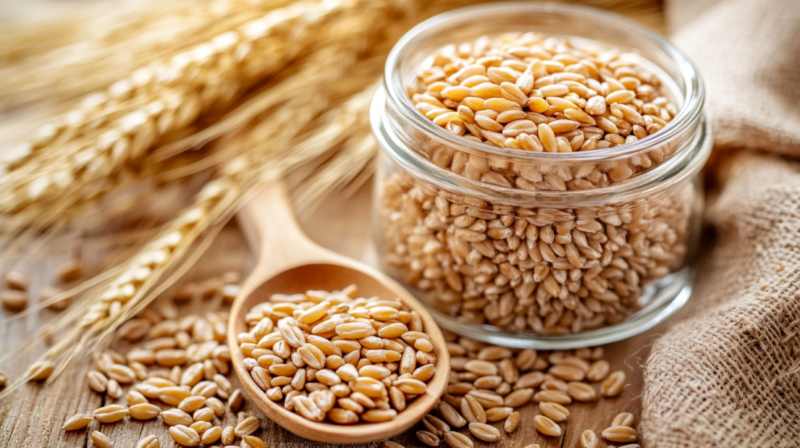Meeting your macronutrient needs is essential for fueling your body.
From the moment you wake up to the time you go to sleep, your body requires energy (calories) to function.
This energy comes from three main macronutrients: carbohydrates, proteins, and fats.
These nutrients are essential for various bodily functions, including metabolism, muscle repair, and brain function.
While micronutrients (such as vitamins and minerals) are crucial for health, they do not provide direct energy. However, macronutrients serve as the body’s primary energy source.
Macronutrient Breakdown
Fat has often been misunderstood and even demonized. However, fats are essential for many bodily functions, including hormone production, brain health, and energy storage. There are different types of fats, some beneficial and others less so. Fat digestion begins in the stomach, making it the slowest digested macronutrient. It helps with satiety, keeping you full for a longer period.
Macronutrient
Calories per Gram
Function
Carbohydrates
4 kcal/g
The primary energy source for the brain and muscles
Protein
4 kcal/g
Builds and repairs tissues, supports immune function
Fat
9 kcal/g
Provides long-term energy, supports brain and heart health
The Truth About Fats
Types of Fat
Type of Fat
Examples
Health Effects
Saturated Fat
Butter, cheese, red meat
Can raise cholesterol levels; should be consumed in moderation
Unsaturated Fat
Olive oil, avocados, nuts
Heart-healthy fats that support brain function
Trans Fat
Processed foods, margarine
Increases risk of heart disease; should be avoided
Protein: The Building Block of Life
Protein is crucial for maintaining and repairing body tissues. It also plays a key role in muscle growth and immune system function. Unlike fats and carbohydrates, protein does not have a direct long-term energy storage function but is vital for overall health.
Sources of Protein
Protein Source
Type
Protein per 100g
Chicken Breast
Animal
31g
Salmon
Animal
25g
Lentils
Plant
9g
Quinoa
Plant
4g
Protein should be consumed in smaller portions throughout the day for maximum benefits.
Carbohydrates: The Brain’s Preferred Fuel
Carbs are the primary fuel for the brain and muscles. Studies show that those who eat the most carbohydrates-especially those found in whole, natural foods-have a lower risk for heart disease, type 2 diabetes, and other chronic health problems. pic.twitter.com/clfIyn9RHe
— Physicians Committee (@PCRM) January 24, 2024
Carbohydrates have been at the center of dietary debates for years. However, they are the body’s preferred source of energy, especially for the brain. When consumed, carbohydrates break down into glucose, which fuels mental and physical activity.
Types of Carbohydrates
Type
Examples
Digestion Speed
Health Impact
Simple Carbohydrates
Sugar, white bread, soda
Fast
Causes quick energy spikes and crashes
Complex Carbohydrates
Whole grains, vegetables, legumes
Slow
Provides sustained energy and fiber benefits
Choosing the right type of carbohydrates is essential for energy management and maintaining stable blood sugar levels.
Wheat: A Powerhouse of Carbohydrates and Fiber

Wheat is a staple food that provides valuable macronutrients, especially carbohydrates and fiber. Fiber is unique because it is not fully digested; instead, it expands in the gut, aiding digestion and providing a feeling of fullness.
Nutritional Breakdown of Wheat Products
Product
Carbohydrates (g)
Protein (g)
Fat (g)
Fiber (g)
Whole Wheat Bread (1 slice)
13g
4g
1g
2g
Pasta (1 cup cooked)
43g
8g
1.3g
2.5g
Whole Wheat Flour (100g)
72g
13g
2g
10g
Oats (1/2 cup dry)
27g
5g
3g
4g
Tips for Choosing the Best Wheat Products
- High in fiber: Aim for 3+ g per serving or 15%+ Daily Value (DV)
- Moderate protein: Between 3-7g per serving
- Low-medium fat: 1-3g per serving or closer to 5% DV
The Importance of a Balanced Macronutrient Intake
@stealth_health_life Replying to @p3nny_th3_w33b Why Do Macros Matter? You can lose weight regardless of your macro-nutrient split – as long as you’re in a calorie deficit. HOWEVER… even if calories are what matter most, macro-nutrients are variables that also have significant impacts on diet outcomes: 1.) They impact how easy it is to remain in a calorie deficit via increased satiety from higher protein intake, and increased satiety from greater food volume (by moderating dietary fat) 2.) Composition of weight loss (higher protein intake = less weight loss that comes from lean tissue, more weight loss that comes from fat – which is the ultimate goal) 3.) They influence how you feel – which impacts how you perform, how hard you train, and impacts how likely you are to sustain the diet long term (THE most important variable of all) Taking each of those points in to account is how I land on my definition of “macro-friendly”: 1.) & 2.) – Protein always AT LEAST 2-3x fat content in every meal. This ensures you are focusing on lean protein sources around every meal time – which will keep you more full for longer, spares muscle tissue, and increases the ratio of weight loss that actually comes from body fat. 3.) Adequate carbs to help with energy levels + performance, without taking away too much from the calorie bank. Usually I shoot for carbs to be 1-2x protein content per meal – this is what leaves me feeling my best and performing at peak levels. I never push fat content as close to zero as possible. Not only is it essential for general health – but it plays a huge part in what I consider to be the most important variable of all – long term diet adherence. Without fat – food will never taste great. It’ll taste like diet food. The art is in finding the minimum effective dose for enhancing flavor via fat – there’s a point where the calorie increases from fat become no longer worth it for the marginal flavor increase. My goal is to create a balanced profile of macros that leave you feeling full, energized and without any desire to reach for foods that would be considered “cheat meals”. The best diet is one you enjoy 👌 #s#stealthhealth ♬ original sound – Stealth Health Life
Each macronutrient serves a unique and essential role in your diet. Rather than demonizing any one macronutrient, aim for a balanced intake that aligns with your body’s energy demands and overall health goals.
Recommended Daily Intake (General Guidelines)
Macronutrient
% of Daily Calories
Carbohydrates
45-65%
Protein
10-35%
Fat
20-35%
Balancing these macronutrients based on your lifestyle—whether you’re an athlete, a sedentary worker, or someone managing a health condition—will help optimize energy levels and overall health.
Conclusion
Understanding macronutrients is the foundation of a well-balanced diet. Each plays a crucial role in maintaining health, energy, and overall well-being.
Instead of fearing fats, proteins, or carbohydrates, focus on consuming high-quality sources in appropriate amounts. Whether you’re looking to improve digestion, fuel workouts, or simply feel better throughout the day, meeting your macronutrient needs is key to long-term wellness.

